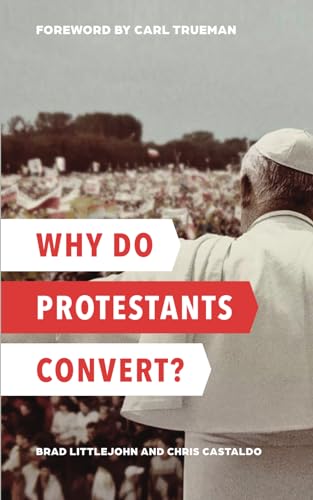An okay exploration of the alarming increase in Protestants jumping ship for Roman Catholicism (and explored to a lesser extent, the Orthodox Church). There's some good stuff here on the longings many converts to Catholicism feel - for beauty, for authority, for certainty, etc. - and why the Catholic church doesn't actually satiate those longings as deeply as potential converts might imagine. Not only that, but much of what they long for is actually to be found already within the Reformed tradition if they would take an honest look. These arguments are the book at its strongest.
Unfortunately, I find their solution (the "way forward") to be somewhat uncompelling and incomplete. Put bluntly, that solution is: evangelicals should be smarter, make better art, and be more liturgical. The paragraph below is a good summary of their thinking:
"The church's ministry, the Reformers recognized, is a teaching ministry, and thus it must be a learned ministry. Through the sixteenth century, one encounters long laments about the ignorance of parish priests and dedicated efforts at educational renewal. These efforts bore rich fruit in the century that followed, so that by the 1620s, for instance, it was said..."the clergy of England are the wonder of the world," on account of the depth and breadth of their learning. Most of the Enlightenment was not the result of the intellectual rebellion of atheistic philosophies; it was the intellectual fruition of Protestant universities and seminaries, which created a culture of learning and discovery, law, and liberty. This is our heritage; it is time that we reclaim it" ( 89).
A crass summary: we used to be the intellectual wonder of the world. Then we got away from it. It's time to be intellectually and culturally impressive again.
I'm not arguing for evangelical anti-intellectualism, which is absolutely a problem. We evangelicals have an issue with biblical and historical illiteracy that needs to continue to be combated. But I don't think the situation is as dire as they present here, nor do I think that reclaiming some kind of intellectual and artistic cultural heritage is the primary way forward. I think evangelicalism broadly has, as Ray Ortlund would put it, a gospel culture problem.
Can we do better in our theological and historical teaching? Yes, and we should. But if more Christians, myself included, were living out a gospel love for one another in a gospel community, I believe fewer Christians would be considering a jump across the Tiber.

